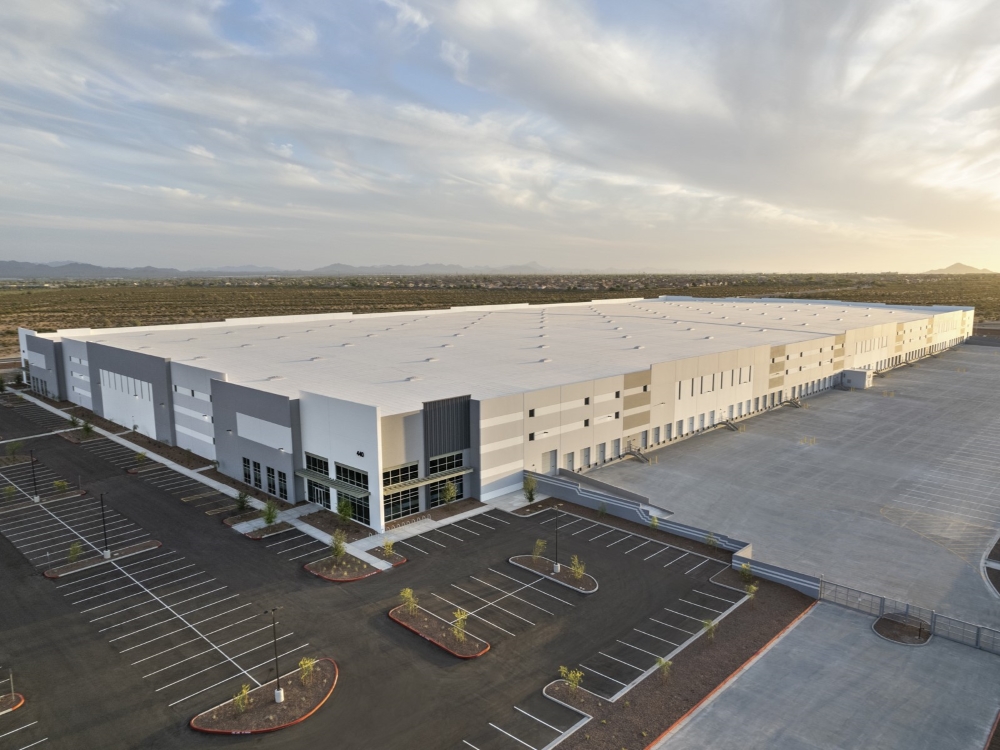Remote Work, Customized Management Thrive in CRE
Jana Turner, principal of RETS Associates, discusses diversity, hiring trends and the best talent-retention strategies for the current Millennial-driven market.
The call for diversity in commercial real estate firms is growing louder, and competitive companies are digging deeper to find the best ways to recruit diverse top talent. In an interview with Commercial Property Executive, Jana Turner, principal of real estate recruitment firm RETS Associates, discussed diversity, hiring trends, what Millennials are seeking in the workplace, and the best CRE talent-retention strategies for the current market.
What can you tell us about today’s CRE hiring trends? Is the pool of job seekers shrinking?
Turner: A prolonged bull market has enabled many in today’s workforce to make more than one career move over the last five or so years to more satisfying and/or higher-paying positions. As a result, many employees in the industry are happy with their new roles and are subsequently less interested in making another move right now. For that reason, an offer in the current market has to be very compelling to induce a candidate to consider a new post.
On the other hand, recent merger-and-acquisition activity in the commercial real estate industry has created some disruption, which tends to generate a new pool of candidates. Therefore, while the pool of active job seekers has shrunk somewhat, there are still opportunities for forward-thinking employers to entice top talent into their companies.
What are CRE Millennials seeking now that they are becoming senior executives?
Turner: Millennials are much keener than previous workforce generations on collaborative, flat organizations, and are challenging the status quo of traditional broad and deep pyramids in organizational structures.
As this generation becomes more senior, they continue to seek work/life balance for themselves and the people they’re managing. In addition, they bring to the table a high level of sophistication regarding technology, which creates efficiencies for both the organization and its staff. Based on this, they are drawn to companies that invest in the latest technology.
READ ALSO: The New Workplace: A Millennial Designer’s Perspective
Millennial executives also crave creativity. They need to feel as though they are “in the room” and part of the solution. They dislike being stagnant and are more likely to make a move if they don’t feel they are being utilized to their capacity. It can be a bit of a challenge for employers to maintain that high level of intensity. However, bringing this generation in to collaborate on new ideas, projects and opportunities can help to create the environment they seek and ultimately lead to stronger overall operations.
What are the most in-demand real estate positions in 2019 across the U.S?
Turner: All levels of analysts are in high demand. Even at this point in the cycle, companies are looking to complete acquisitions and development, and analysts are critical to completing the underwriting necessary to accomplish those goals. Additionally, analysts are needed to support asset management and disposition activities, contributing to high demand for analyst positions at every point of an asset’s life cycle.
Industrial remains the hottest CRE property sector, and we are seeing robust activity to fill positions at all levels within this sector. We do not see this trend declining due to the continued rise of e-commerce activities. Rather, industrial-focused firms continue to bolster their teams with new talent.
The multifamily sector remains strong as well, with companies continuing to seek candidates at varying levels to serve acquisitions, asset management, property management and disposition activities.
What are the top destinations for commercial real estate jobs?
Turner: RETS has seen high activity in San Francisco, Denver and Southern California—particularly Los Angeles. In addition, we have seen movement over the last few years into Salt Lake City and Nashville, popular markets for in-migration in the CRE hiring field.
How is diversity evolving in CRE?
Turner: Diversity in CRE is evolving slowly, yet the opportunity exists for diverse hiring to improve significantly. Nearly every CRE company wants a diverse employee base because there is compelling evidence that diversity improves companies’ bottom lines. That said, it can be difficult to generate a diverse inflow of candidates.
Regarding gender diversity, we have always experienced more women in the ranks of property management and workplace solutions/corporate services. This trend exists for entry and mid-level roles but not for the most senior positions. According to a white paper by Commercial Real Estate Women, women comprised only 9 percent of the C-suite in 2015, even though they held 54 percent of mid-level associate and senior positions, and their average income was 23.3 percent lower than that of men in the industry. Also, some statistics indicate that only one in five people in CRE who are on career-based social-media platforms are female, decreasing women’s exposure to all positions.
One roadblock to CRE diversity, in general, is that many young people aren’t aware of CRE opportunities unless they have a family or friend in the business. There are very few solid recruitment programs aimed at entry- or college-level candidates to educate young talent about the many career possibilities in the CRE world.
READ ALSO: Gender Diversity in CRE: A Progress Report
One way to counteract these problems is for companies to provide better outreach, education and recruitment programs. Executives at forward-thinking CRE companies are stepping up by allocating dollars for solid college/university recruitment programs, along with entry-level training platforms.
Additionally, senior executives are increasingly guest lecturing at colleges and encouraging academic institutions to offer more degrees within the CRE sector, while becoming more active in industry organizations. Educating students about career opportunities in CRE and providing pathways for young people to enter the field can certainly contribute to the development of a more diverse workforce.
What are the best talent retention strategies in 2019? Is there a growing compensation trend? What about bonuses?
Turner: RETS’ deep experience as a recruitment firm has demonstrated that people don’t leave companies—they leave bosses. Therefore, in retaining key talent, it’s imperative to have the right leaders in place who can effectively manage a multigenerational workforce.
Being a great leader is both an art and a science, and requires the ability to evolve with the ever-changing demands of the industry.
CRE companies with strong in-place leadership understand that each generation of professionals has different needs and behaviors, requiring a customized management style and approach. These insights are key to a successful retention program. Companies that are committed to providing management and leadership development programs have a clear advantage over firms that expect their leaders to arrive fully informed.
Naturally, compensation is also a major factor in talent retention. Companies must keep current on compensation package offerings in order to demonstrate their commitment to their star team members, and because, in this competitive employment environment, employees are constantly being approached by recruiters and other firms.
However, compensation doesn’t necessarily have to come from salary. With today’s emphasis on work/life balance needs, many candidates prefer more vacation time, a flexible work schedule and a remote work environment to that of a higher cash-compensation package. For this reason, hiring companies may need to reexamine their entire benefits package and make some adjustments in order to remain competitive.
An employer’s attitude toward social responsibility also matters to today’s workforce. This generation is looking at everything from simple recycling to a natural or organic work environment to the philanthropic causes the firm supports. For this reason, today’s CRE companies must pay attention to these endeavors, and communicate them wisely to prospective team members.
How are remote work trends impacting the industry? Are employees embracing this type of flexibility?
Turner: With advances in technology, remote working is more popular than ever. This trend is a true win-win: Companies with remote-worker policies require less office space, which benefits their bottom line, while simultaneously providing the flexible work lifestyle employees are demanding.
Companies are also increasingly offering flexible hours that take into account employees’ lives outside of the office. Remote working and flexible hours are trends that are here to stay, and these are extremely important factors in recruiting and retaining key talent.
Taking into account the timing of the economic cycle, do employers hire less in anticipation of a downturn?
Turner: While some employers are being more cautious in hiring at this point in the economic cycle, now is still a very busy time for RETS. Our activity in open positions has been as strong this year as it has been over the last two years.
The fundamentals and outlook for the CRE industry remains positive. We expect this trend to continue through Election Day 2020, as the tide could change based on the election outcome.











You must be logged in to post a comment.